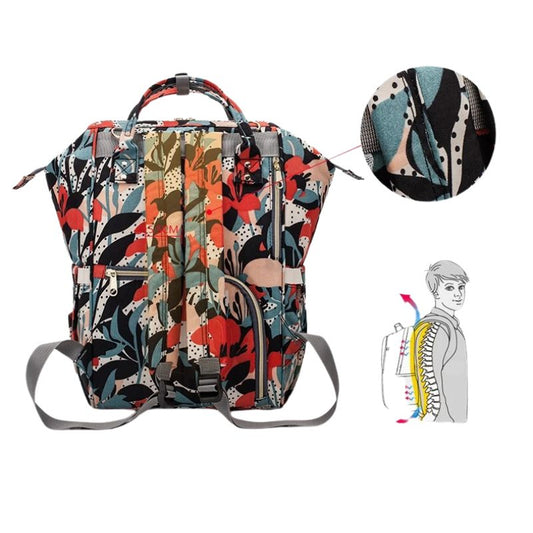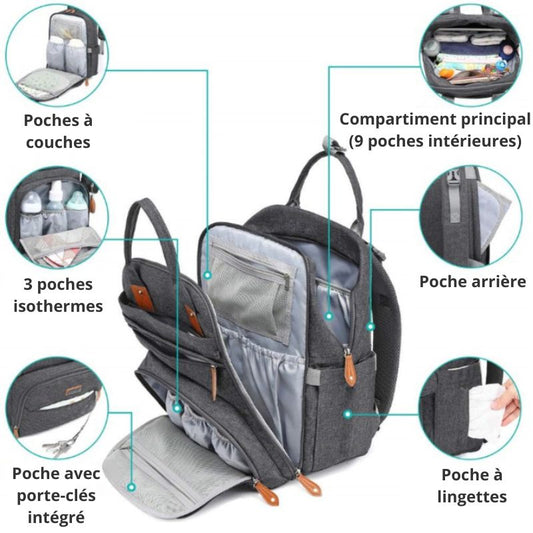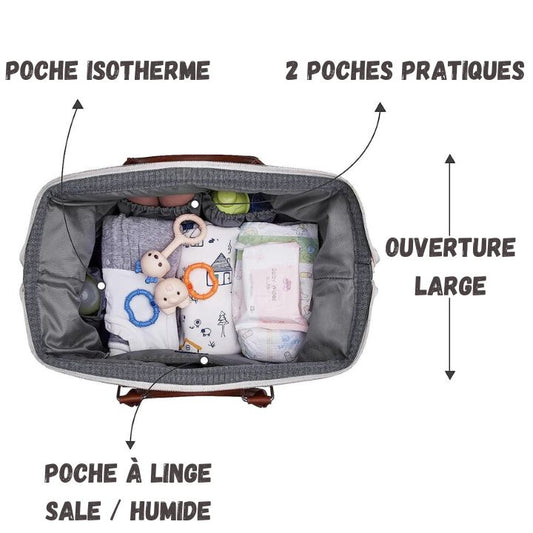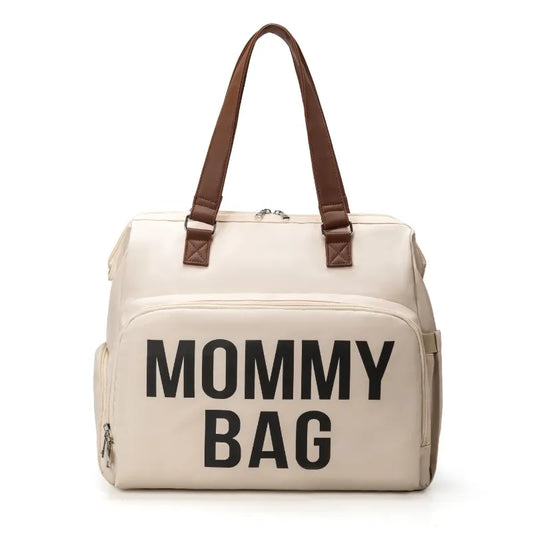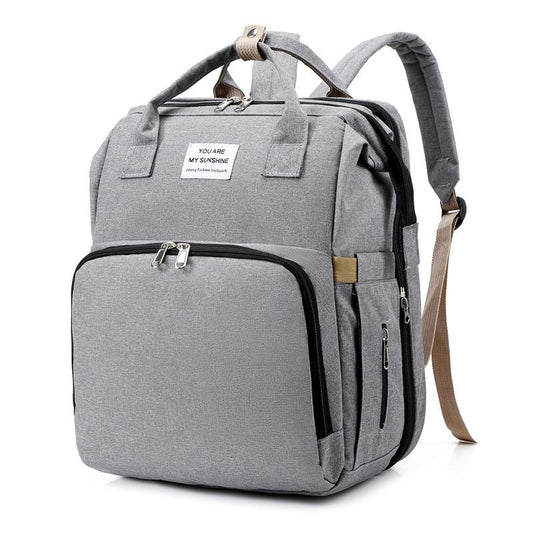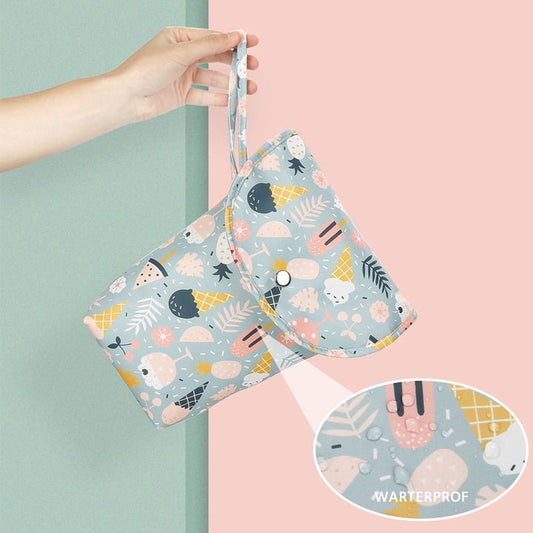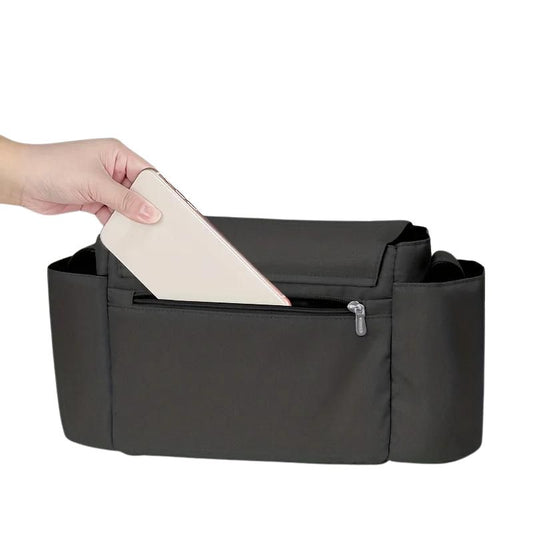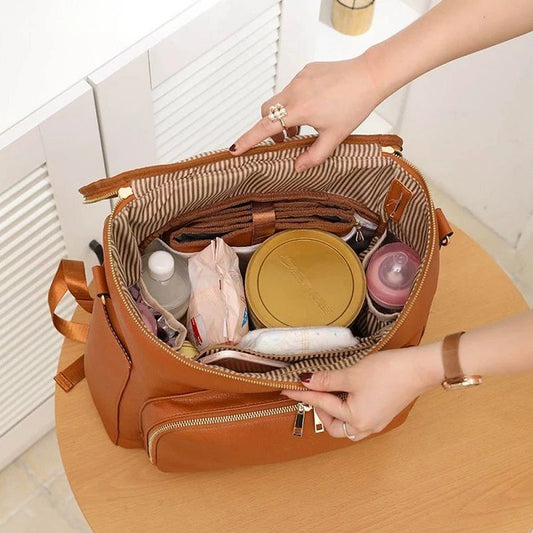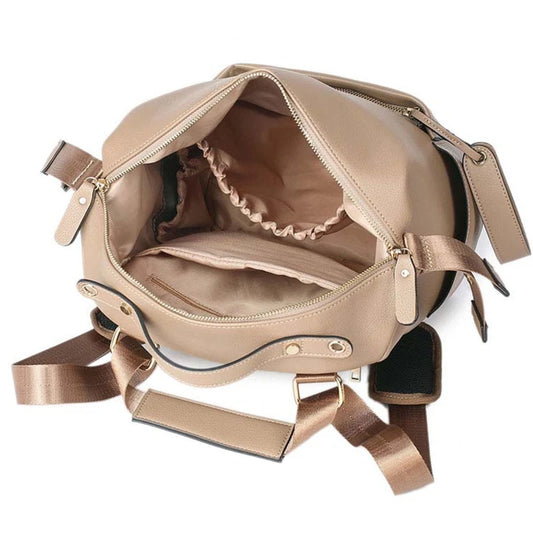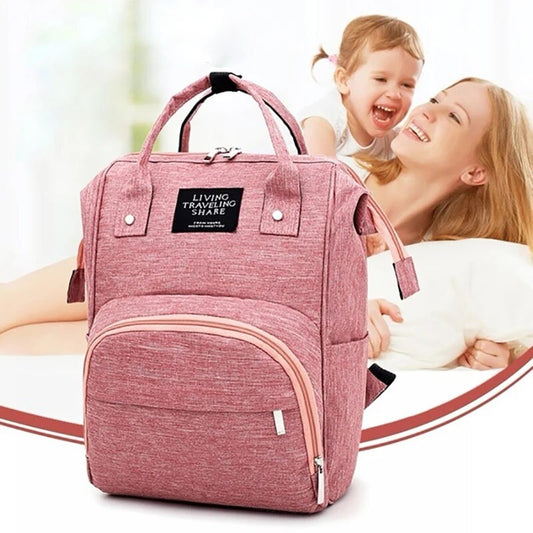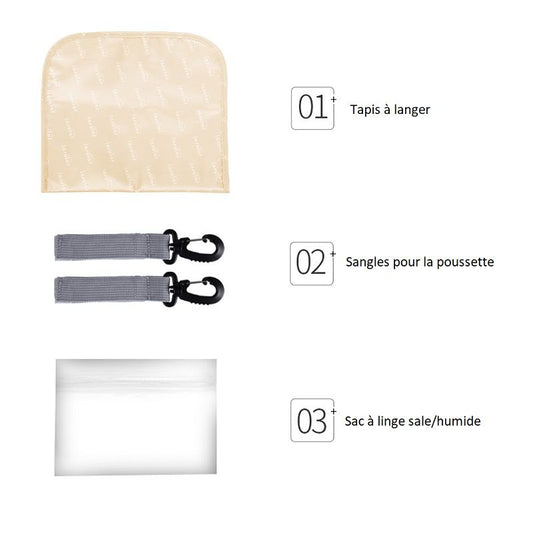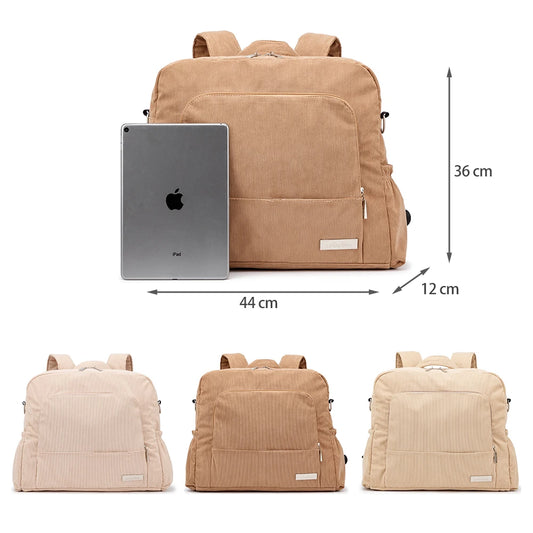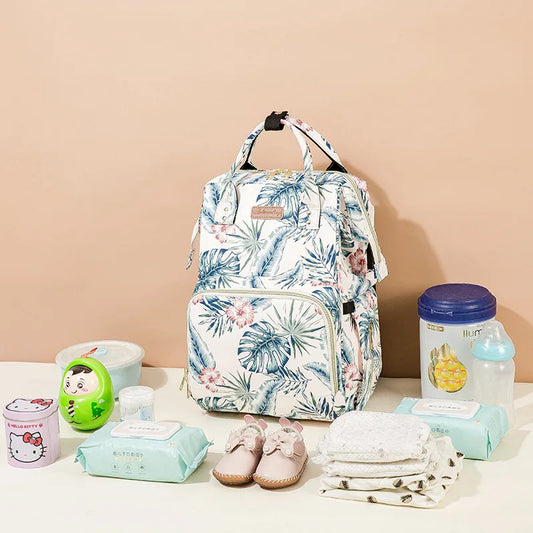For new parents, caring for a newborn can be terrifying. Babies do scary things all the time – things that will turn your hair gray and take years off your life. Sometimes it's worth worrying, but all that terror might be a waste of perfectly good hair follicles. Many of these scary things are normal(-ish) and nothing to worry about. The section below attempts to clarify when panic is justified.
Discover our Baby Cushions collection.
When to STAY CALM during the newborn period:
1. You notice that your baby's hands and feet are blue or purple. This is a normal condition called acrocyanosis of the newborn. Most infants' hands and feet are usually bluish - frightening to observe, but not a problem. Anectodically, this condition persisted in my own children until about age two. It was worse in cold weather and was more obvious at the onset of fever.
2. Your baby has short periods of breath holding (less than 10 seconds), followed by a series of rapid breaths. He almost seems to be hyperventilating, which makes you start to hyperventilate. Nothing to worry about ! This is called periodic breathing of the newborn. This happens to most babies within the first two weeks of life. Fortunately, periodic breathing is not normally associated with respiratory distress or color changes.
3. When your baby inhales, she makes a high-pitched noise. It almost looks like she's having trouble breathing, but she looks perfectly content. Many infants are born with a flaccid upper airway that partially collapses when they inhale. This leads to a high-pitched inspiratory sound called “stridor.” Although the noise is frightening to hear, the condition, otherwise known as laryngomalacia, is completely benign and babies eventually escape it.
4. Your baby's face gets covered in a terrible rash, bringing back teenage memories you'd rather forget. Okay, this is terrible to admit, but when my first daughter was six weeks old, I nicknamed her "pizza face." She had a terrible case of childhood acne. Luckily, the rash resolved without any treatment within a month or two, as it usually does.
5. Your baby hasn't pooped in seven days. Alternatively, your baby poops seven times a day or more! In my practice, I often refer to the "rule of seven" regarding bowel movements in newborns. A baby may poop seven times a day or once every seven days. These intervals and everything in between are NORMAL. If the stools are soft and do not contain blood or mucus, everything is fine. Incidentally, stools can be almost any color - green and orange work well! At first, a newborn's stool is usually dark green and sticky (this is called meconium), but it will soon become yellow and grainy. The only truly abnormal color is white, which can be a sign of liver disease.
6. You look at a photograph of your baby and his eyes are misaligned. Although some babies have true "lazy eye" that will require treatment by an ophthalmologist, a more common diagnosis is "pseudostrabismus." In many infants, the inner folds of the eyelids partially cover the white part of the eye. This creates an optical illusion in which the eyes appear misaligned but really aren't. If the corneal light reflex (a bright white spot of light on the pupil) is symmetrical, then your baby probably has pseudostrabismus. Be sure to share your concerns with your pediatrician about your baby's eye alignment.
7. Your baby's eyes are always watery and sometimes have a sticky discharge. Carefree. She likely has blocked tear ducts, which will resolve over time, usually within one to two years. In the meantime, you can treat blocked tear ducts with warm compresses two to three times a day. Massaging the inner corner of the affected eye can help open the channels. If the discharge begins to become thick or the eye becomes irritated, contact your pediatrician. In this case, your baby may benefit from antibiotic drops or ointments. When nasolacrimal duct obstruction persists beyond a year, babies are sometimes referred to a pediatric ophthalmologist.
8. Your baby suddenly raises both arms above his head and starts screaming. This is a normal startle response of the newborn, called the Moro reflex. It usually resolves within four to six months.
9. Sometimes your baby eats for 30 minutes, and other times she finishes in five minutes. Just like adults, babies have days (or meals) when they feel hungry, and other days not so much. Meal size can vary dramatically, so expect some variation.
10. You are breastfeeding and your baby starts coughing up blood. For better or worse, the blood is probably coming from your own traumatized nipples. Let your pediatrician or obstetrician know if you have trouble getting a good latch.
11. Your newborn has vaginal bleeding. “Pseudomene” is caused by hormonal withdrawal and does not require treatment. Be aware that bleeding may last for a few weeks.
12. Your little girl (or boy) has swollen (but not inflamed) breasts and produces "witch's milk," which looks like breast milk. It is a benign condition caused by hormonal withdrawal. No treatment is necessary. Be sure to resist the impulse to squeeze milk, which could prolong symptoms.
13. Your baby goes limp in your arms and becomes briefly unresponsive after an obvious episode of spitting up. Sometimes reflux can trigger what appears to be an “acute life-threatening event,” or ALTE. Although most of these episodes resolve quickly with some stimulation and cause no lasting harm to the baby, parents may be left permanently traumatized. Please contact your pediatrician for help when something like this happens.
14. Your baby is constantly hiccupping. Don't worry, this is completely normal and does not require any treatment. She will end up escaping it.
15. The umbilical stump bleeds a little when it comes off – another normal occurrence in newborns. The base of the belly button will also have a yellow or green discharge when the cord comes loose. If the skin around the belly button is not red or inflamed, everything is fine. If the area develops a foul odor, you can clean it with a small amount of rubbing alcohol once or twice a day. Generally, NOTHING needs to be done to manage a detached umbilical cord. Once the umbilical stump is detached, your baby can take a full bath. If the stump falls off and your baby continues to have umbilical discharge a few days later, make an appointment with the pediatrician. Your baby could have umbilical granuloma, a common condition that benefits from silver nitrate treatment to cauterize the area. Call your pediatrician immediately if the skin around the belly button becomes noticeably red or inflamed.
16. You notice blood in your baby's stool. Babies can have blood in their stools for a variety of reasons. Small rectal and anal fissures may bleed a little, but they usually heal quickly if the stools are soft. A milk protein allergy (whey and/or casein sensitivity) can also cause blood in the stool. For nursing mothers, most pediatricians and gastroenterologists recommend eliminating dairy products from the diet if a milk protein allergy is suspected. Babies taking regular formula should switch to a fully hydrolyzed formula, such as Alimentum or Nutramigen. Although it can be scary to see bloody stools (and it may take a week or two to resolve), it usually turns out to be a minor problem. Fortunately, most infants outgrow milk protein allergies before their first birthday.
17. Your baby spits up all the time. Regurgitation during the newborn period (also known as gastroesophageal reflux) is an extremely common problem because the muscles that keep milk in the stomach are not well developed at this age. Some babies spit up with every meal, and sometimes the spitting up is so violent that milk comes straight out through the nasal passages. Yuck! If your baby is a "happy regurgitator" (he vomits regularly and doesn't care at all), then the condition probably does not require further treatment or evaluation. However, if you're tired of doing laundry, you can try to minimize reflux by keeping your baby elevated after meals. Bjorns baby carriers work well for this purpose as they keep babies suspended in an upright position. Remember, when it comes to managing reflux, gravity is your friend. Elevating your crib or bed mattress with a pillow underneath also helps minimize reflux symptoms. Car seats are also useful for managing reflux thanks to their natural elevation. Be sure to secure your child in the car seat after meals to avoid movements that could compromise the airways.
If your baby is bottle-fed, you can try thickening breast milk or formula with infant cereal. The usual ratio is one to three teaspoons of infant cereal (like rice or oats) per ounce of breast milk or formula. Be careful not to thicken the milk so much that it cannot pass through the teat.
Speaking of pacifiers, if your baby is prone to reflux, a Nuk pacifier could be very useful. Unlike most regular pacifiers, the Nuk is designed to slow the flow of milk, which helps prevent babies from drinking too quickly, overfilling their stomachs and choking.
Babies with significant reflux who appear to be in pain are frequently treated by pediatricians with antacids. Heartburn medications like Prevacid, Zantac, and Pepcid are among the most commonly prescribed medications for babies during the first year of life. Yet many studies have shown that these medications don't work much better than placebo or the modifications mentioned above. Additionally, antacids can have unwanted side effects. Studies in young infants (especially premature babies) and the elderly have shown that antacids may increase the risk of upper respiratory infections, pneumonia, gastroenteritis, and infections with harmful bacteria like Clostridium. difficult. In my opinion, unless a baby (and their parents) are miserable with reflux symptoms, antacids should be avoided.
18. Your baby is very fussy and squirming due to painful gas. In the beginning, ALL babies struggle with gas to some extent. If you don't remember anything else about gases, remember this: gases will pass. Gas is NOT a reason to change formula, stop breastfeeding, or put your child on reflux medication. During the first month or two of life, newborns have a reflex in which they squeeze their buttocks together when they need to pass gas. Instead of just farting and feeling better, they squirm and cry, holding in the gas. Fortunately, this is a short-lived problem. By four to six months, most babies are farting happily and no longer fighting their own gas.On a related note, babies grunt, squirm, and turn red when passing stools. This DOES NOT mean they are constipated. If the stools are soft, all this commotion is normal.
Discover our Blog .
19. Your baby has had clear phlegm coming from his nose and has been coughing for two weeks. Is it time for antibiotics? The answer is probably not yet. When a cold or runny nose lasts more than a few days, it can seem like it lasts forever; but viral upper respiratory illnesses in babies usually take more than 10 days to resolve. Anecdotally, in my own practice, babies with significant viral respiratory illnesses cough frequently for a month or more. Most of these children do not require antibiotic treatment.
20. Your baby sweats like a professional basketball player. For reasons I can't explain, some babies sweat a lot. After a nap, their clothes may be soaked with sweat. If a baby's core temperature is normal, excessive sweating while resting is usually not a cause for concern.
21. Because of their immature neurological systems, babies do strange and scary things. Their chin quivers frequently and they may show some clonus (rapid rhythmic movements) in their legs and ankles. They may also have slight tremors of their limbs. The good news is that they aren't shivering from the cold and probably aren't having seizures.
Clonus, tremors and the classic "chin quiver" of newborns are caused by an immature neurological system. They eventually disappear without treatment. FYI, chin quiver can take over a year to resolve. If a baby is awake and alert, and the tremors can be stopped by gently holding the limb, then the baby is NOT having seizures and does not need to see a neurologist.
22. Pieces of hair can sometimes get wrapped around fingers, toes or private parts, blocking circulation. If your baby develops sudden pain and swelling in any of these body parts, look for a hair tourniquet. Hair can usually be removed with fine scissors or Nair. If you are unable to remove the tourniquet at home, go to the nearest pediatric emergency room (but don't panic, as the condition will be corrected soon).
23. Your baby has white patches on his tongue, lips, gums and/or cheeks. This is oral thrush, a common type of yeast infection in babies . Thrush is generally harmless and can be treated with oral antifungal treatments.
24. Your baby sleeps most of the day. Initially, infants may sleep 18 hours a day or more. Spending most of the day sleeping for new babies is perfectly normal, especially if naps are punctuated by periods of wakefulness.
For more information, visit UNAF .














